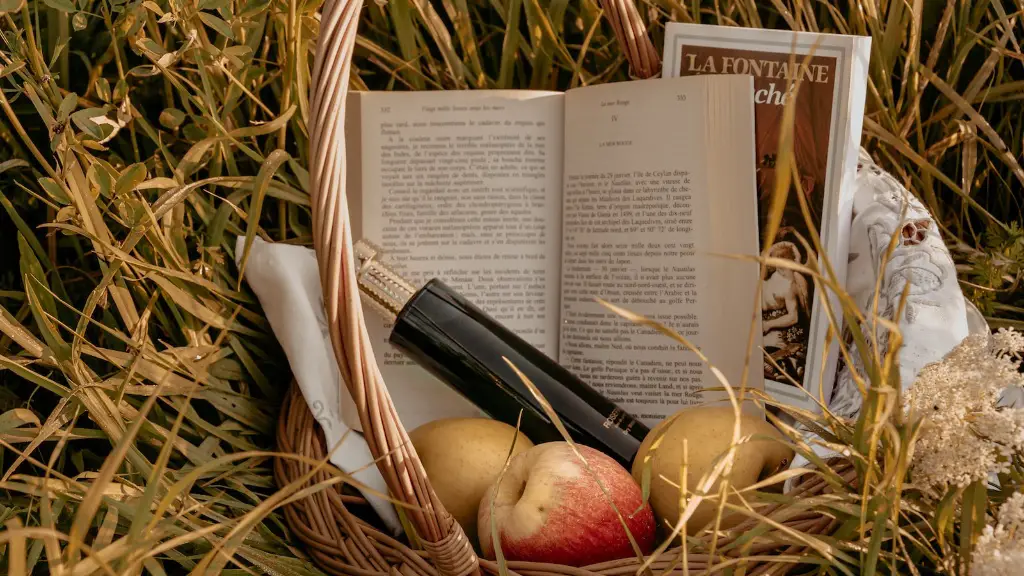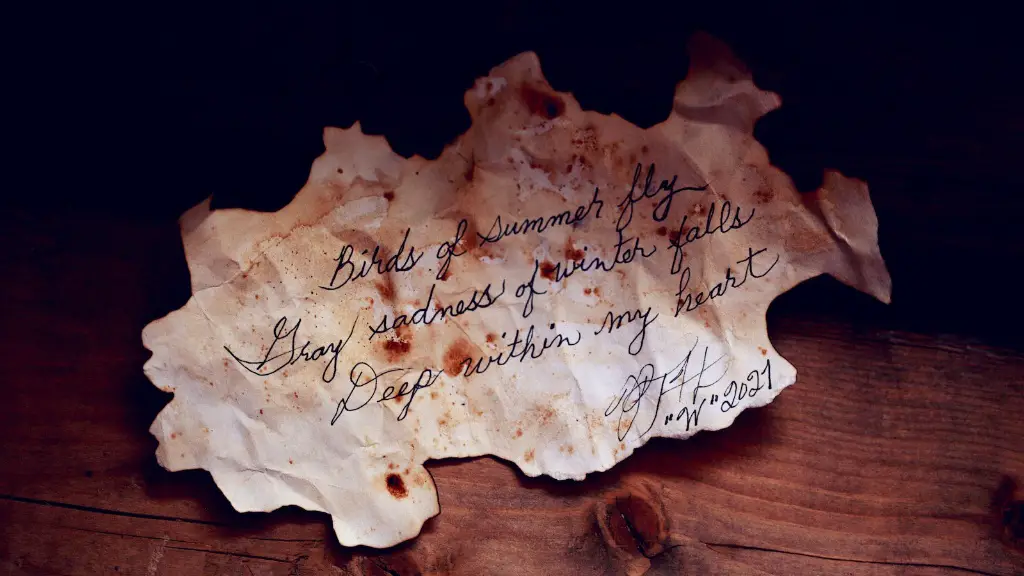Tips for getting Paid for Poetry
Writing can be a fulfilling and lucrative career for any artist. Poetry is particularly special as it presents an opportunity to express oneself in a unique way. While some may opt to pursue traditional publishing, selling your poems to individual readers and businesses can be equally rewarding. Here are some tips to get you started on the path to earning money through your creative work.
Research Markets
Before you can start getting paid for your work, you must do your due diligence to find the right markets. Start by researching magazines, websites, and businesses that will buy your poetry. Think outside the box and explore international opportunities as well as markets that cater to local, niche markets. Apparel companies, special event organizers, greeting card businesses, and other venues often purchase the rights to poems for their specific use.
When considering a potential customer, take a look at their mission statement and pay careful attention to their guidelines. Research the rates they offer, and if their compensation is fair within the industry. Ask yourself: is it worth your time and effort to pursue this opportunity?
Build a Professional Network
Networking with other writers, agents, publishers and editors can help you find new opportunities and resources to sell your work. Consider attending industry events, joining groups and associations, and connecting with potential customers through social media platforms like Twitter and LinkedIn. These activities can open the door to many new contacts and potential clients.
It’s also important to recognize the importance of trust in the writing community. A bad review from an editor or publisher could hurt your reputation, and vice versa. So build relationships with people who share your values and be honest in your dealings. This will ensure a better long-term outcome for everyone!
Send Out Your Work
When you feel confident that your poetry is ready for submission, you’ll need to decide how to send your work out. Depending on the markets you are targeting and the payment that is available, you may opt to submit via email or postal mail. Each venue will have its own specific guidelines, so make sure to follow them carefully.
When submitting, be sure to include the following information: a cover letter introducing your poem, a brief bio of yourself, samples of previous work (if available), and any contact information where you can be reached. This ensures that your work can be appropriately evaluated and that you’ll be credited properly. Be sure to keep copies of everything you submit!
Negotiate a Fair Price
When you’ve found the right client for your work, don’t be afraid to negotiate for a fair rate. Consider your value as a writer and be sure that the client is also compensating you for your time and effort. If the client is offering a flat fee for your poem, ask for a higher rate or consider a share of any licensing fees or royalties that the poem may generate.
Be clear about your expectations and preferred methods of payment. It’s important to be accommodating, but you should also protect yourself legally by having a written agreement in place that outlines all of the terms of the agreement. This helps to prevent any confusion and ensures that both parties understand the arrangement.
Protecting Your Work
When sending out samples of your work, be sure to mark them “Submitted for Your Consideration.” This provides you with a legal right of recourse in the event that your work is reproduced without your knowledge or consent. Additionally, it’s important to maintain the copyright of your work. A copyright protects you from having your work taken without compensation, or from having someone else claim authorship of your work.
Although it may be tempting to publish your work without a copyright, it can leave you open to potential legal issues and potential loss of royalties. Copyrighting your writing is an important step in protecting your rights as a writer, so be sure to register your work with the Office for Copyright or submit an application to the U.S. Copyright Office.
Advancing Your Career
Once you’ve gained some experience in the industry, continue growing your skills and your presence in the writing community. Taking a workshop or pursuing an advanced degree in creative writing can further your career and open up more opportunities. Building up a database with editors and publishers can also help you get your work into more hands. Use workshops, panel discussion and conferences as an opportunity to network, develop new relationships and discuss the work you are doing.
Joining a writers’ collective can also be beneficial. Collaborating with other writers can provide a support system and can often lead to more paid opportunities. Writing groups also provide an opportunity to discuss best practices and gain more insight into the business side of writing.
Marketing Your Work
Developing a marketing plan for your work is essential when trying to sell poetry. Consider using a press kit that contains samples of your work and a brief bio of your accomplishments as a writer. Having promotional materials to hand out or distribute online is a great way to get your work noticed. Additionally, You can use social media accounts, a website or a blog to easily connect with customers, readers, and potential clients.
It’s also important to keep your portfolio updated. Having a selection of your most current and popular works at your disposal will demonstrate to potential customers that you are an active writer with a variety of options. And having current and up-to-date work makes it easier to collaborate, spark ideas and start conversations.
Diversifying Your Writing Revenue Stream
While getting paid for poetry may be the ultimate goal, it’s important to remember that there are other ways to monetize your writing. Selling merchandise can be a great way to earn additional income, and thank you gifts for patrons can reaffirm their loyalty. You can also use crowdfunding platforms to help fund special projects, and selling books at live events to build your fan base. All of these avenues offer new revenue streams that can supplement your income and help you grow your business.
Teaching classes, workshops and seminars is another route, allowing you to share your skills and inspire others. You can also self-publish, promote anthology and author reading events, and pursue public speaking engagements to promote your work and gain more exposure. All of these options can increase your overall revenue and help you build an even stronger writing career.
Making the Most of the Digital Revolution
In today’s digital age, the opportunities for writers and poets to make money from their work have never been greater. Platforms such as YouTube and Patreon are generating online catalogs that allow writers to monetize their work via podcast, digital open mics and streaming services.
At the same time, authors are creating branded content for marketing campaigns and companies are using freelance writers to produce copywriting that reflects their values or promote their products or services. All of these choices open up even more ways to get paid for your work.
Keeping Track of Your Income
Once you have established customers and income streams, it’s important to keep track of your income and expenses. Utilizing accounting software is a great way to stay abreast of your finances and separate your business-related income and expenses. Staying organized will help you maximize your earnings and provide you with a more detailed look at where your income is coming from and where you can make improvements.
Knowing how and where to report your income to the IRS is also essential, so be sure to consult a tax professional to ensure that you are in compliance with current regulations. Having an understanding of the laws and regulations in your area is key to protecting yourself and your income.





